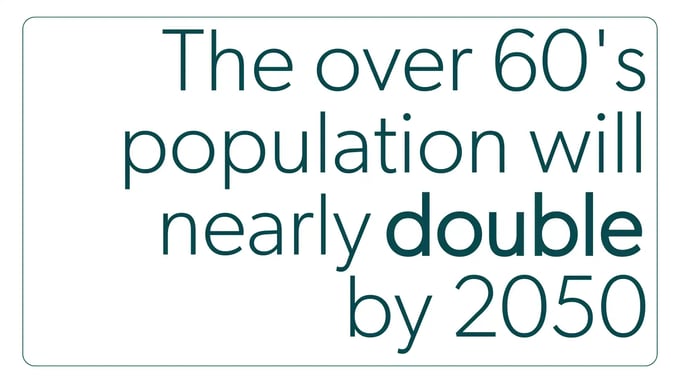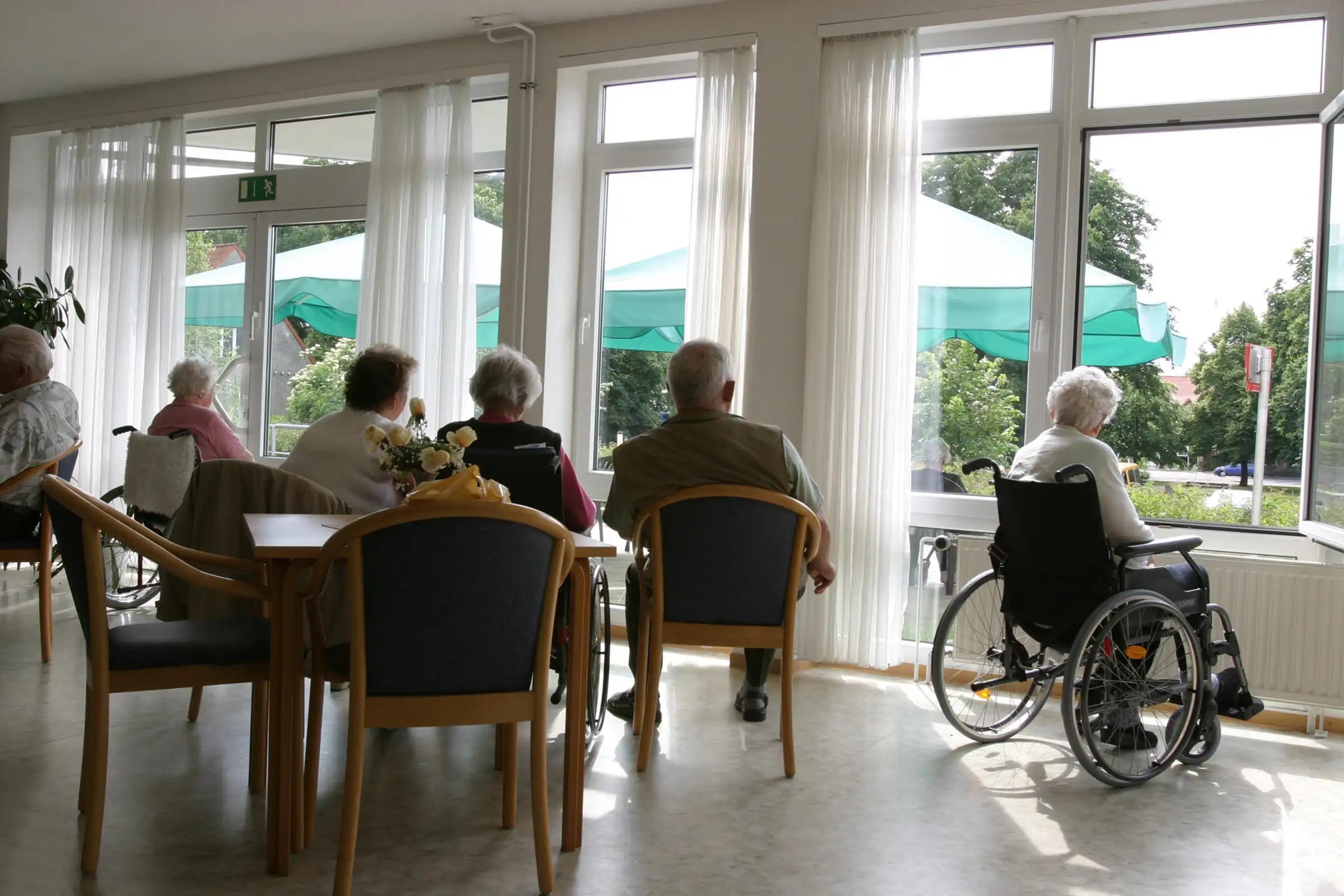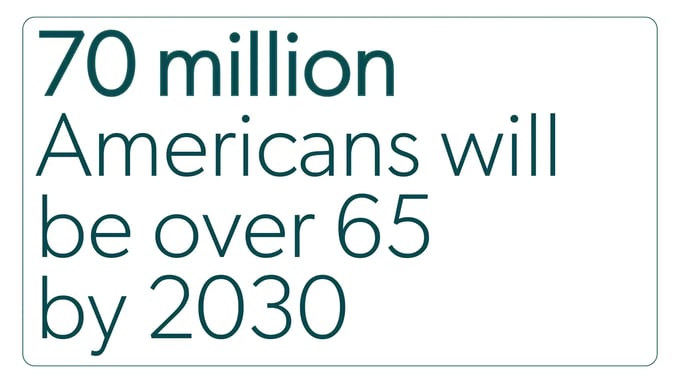How Digital Healthcare Can Transform Senior Living Standards
The aging population is on the rise, making it critical to harness senior care technology solutions. With the population of people over 60 expected to almost double by 2050, this signals a potential imminent senior care crisis. However, despite this looming challenge, many senior care communities are still reliant on outdated standards and software, negatively impacting the quality of life for their senior residents.
To address this pressing issue, it is crucial to embrace tech for senior care communities. Integrating these innovative tools not only enriches the environment for senior residents but also provides vital support to care communities, ensuring that they can meet the evolving needs of their residents effectively.
The grey wave is impacting healthcare technology
Senior care technology solutions are reshaping the senior care landscape, offering cost-effective solutions, and alleviating caregiver burdens. Scientific advancements in nutrition, fitness, vital measurement, and communication technologies are empowering seniors to lead more fulfilling lives. With the rise of chronic diseases among aging populations, digital tools are becoming essential in senior care, enhancing resident experiences and overall quality of life.
Approximately 2 million seniors reside in a senior care community or other assisted community across the United States, many facing disabilities. Thanks to technological innovations in these communities, older adults are experiencing increased self-reliance, safety, and connectivity. The COVID-19 pandemic accelerated the adoption of digital solutions in healthcare, including senior care, as social distancing measures became necessary. Older individuals, at higher risk of severe illness from COVID-19, faced increased isolation due to visitor restrictions in nursing homes. However, digital communication platforms like Zoom and FaceTime bridged the gap, enabling virtual interactions and maintaining vital connections during challenging times.

Prevailing and emerging trends in senior healthcare
Adopting technology solutions in senior care like telehealth, wearables, remote monitoring, virtual health care, wander management, fall detection and prevention, medication management, digital communication, and others is crucial. Let's take a closer look.
Virtual healthcare systems
Virtual healthcare is one critical aspect of digital innovations that have helped deliver care and connect families. It allows care teams to connect residents with their loved ones and providers.
In this era of COVID-19, virtual care for seniors has become almost a necessity in senior care. Without an onsite physician, several senior care communities can connect their residents to specialized medical expertise without leaving the community.
Similarly, virtual care provides a rise in access to care for many seniors. With many specialists experiencing burnout and stress, virtual care can help reduce the load on overburdened specialists and increase access to care for many in senior living.
Virtual care can provide immediate specialized care for many seniors, offering them a crucial lifeline and protection.

Digital communication platforms
Communication is an essential aspect of technological innovations that can help improve the efficiency of senior care and enhance the quality of life of seniors.
Adapting technology solutions in senior care communities helps to promote family engagements and enhances the lives of residents and those who care for them.
In addition, some digital communication platforms are an all-inclusive solution for residents to interact and connect with their families to ease the challenge of social isolation. Families can view the health summary of their loved ones and receive notifications of scheduled virtual visits through apps like FaceTime, Skype, and WhatsApp.
Medication management systems
Medication safety is critical in senior care — wrongly prescribed medications can be fatal. Workers in the senior living industry face the challenge of manually administering medications safely to residents.
Digital innovations in medication management ensure that accurate medicines are given to the right resident at the right time and lower the risk of errors.

Wander management systems
Wandering behaviour is one of the most challenging management aspects in persons with dementia. It is associated with an increased risk of falls, injuries, fractures, and going missing or being lost from a care community. This causes increased distress in caregivers at home and in healthcare communities.
Senior care requires technological inputs for better and more efficient service delivery, and a wander management solution is one of them.
Digital innovations in wander management include visual deterrents placed on doorways, loiter and door-ajar monitoring, simple battery-operated door alarms, and sophisticated alarm systems for multiple entries and elevators, to name a few.
Wander management solutions could also include resident ID and tracking devices that help caregivers locate residents who may have left the community.
Fall management solutions
Falls are one of the leading causes of fatal and nonfatal injuries in most senior citizens. In addition, the severity of falls for some senior citizens is far beyond physical injuries.
Falls might cause psychological trauma for some seniors resulting in a reduction of the quality of life for the individual. However, by Integrating medical and technological solutions, senior care communities can effectively curtail the incidences of falls among older adults.
Tech solutions designed to reduce falls in senior living include anti-slip footwear, grab bars to provide support, and matting with anti-slip surfaces. Digital fall management solutions can also help to notify the caregiver when a resident has fallen for immediate response.

Enhanced caregiving through innovation
By 2030, the number of Americans aged 65 or older will exceed 70 million, and we will face an urgent senior care crisis sooner than we thought. However, despite this looming challenge, the steps can be taken to implement senior care technology solutions to tackle this pressing issue head-on. Integrating these innovative solutions not only enhances the living environment for senior residents but also provides indispensable support to care communities, enabling them to address the evolving needs of their residents adeptly.